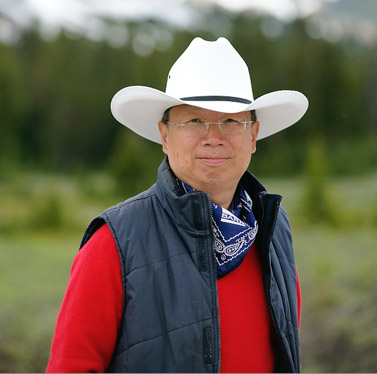
Prof. Yao-Tung Lin
Lifetime Distinguished Professor, National Chung Hsing UniversityDirector, Taiwan National Science and Technology Office for Net-Zero Emission
Speech Title: Transforming Biomass Waste into Advanced Antimicrobial Materials: A 3D-Resolved Pathway for Sustainable Water and Environmental Protection
Abstract: Waterborne microbial contamination continues to pose significant challenges to global public health and environmental sustainability. This study integrates circular-economy biomass valorization with advanced photochemical disinfection and near-native 3D cellular imaging to develop next-generation antimicrobial materials for water and environmental applications. Fishery-waste-derived chitosan (CTS) was combined with polyphenol-rich fruit-pomace extracts (JAE) to create multifunctional bioactive films exhibiting vigorous antibacterial activity, antioxidant performance, and biocompatibility. CTS–JAE composites achieved >5.7-log reduction of E. coli and effectively inhibited microbial activity through synergistic electrostatic membrane disruption and polyphenol-mediated oxidative stress. To enhance applicability in environmental systems, a visible-light-responsive CTS–N-TiO₂ photocatalytic composite was further developed, achieving 99.999% inactivation of S. aureus and 99.9% of E. coli under visible light, and maintaining disinfection capability even under dark conditions through combined ROS-driven oxidation and CTS-induced metabolic inhibition. A key contribution of this work is the first application of Transmission X-ray Microscopy (TXM) and Cryogenic Soft X-ray Tomography (SXT) to resolve the near-native 3D morphology and subcellular dynamics of microorganisms during inactivation. The imaging results reveal progressive cell-wall fragmentation, membrane lysis, intracellular matrix shrinkage, organelle leakage, and nanoscale structural collapse across full 360° perspectives—behaviors that remain undetectable in conventional 2D SEM/TEM observations. Overall, this research establishes an integrated framework—from waste-derived antimicrobial materials to visible-light photocatalysis and 3D mechanistic visualization—supporting sustainable water treatment, microbial risk reduction, and circular-economy-driven material innovation. The findings offer a scalable, low-carbon technological pathway with strong potential for advancing environmental biotechnology and water pollution control across diverse global settings.
Biography: Professor Yao-Tung Lin is a globally recognized expert in environmental engineering, with over three decades of academic and professional experience spanning carbon sequestration, high-value material innovation from agricultural and fishery waste, and advanced synchrotron-based characterization. As a principal investigator and lead scientist, Professor Lin has pioneered novel methods to transform waste into multifunctional materials with antimicrobial, antioxidant, and environmental applications. His research integrates nanotechnology, photocatalysis, and AI-driven material sensing, with special emphasis on chromatic pH-responsive indicators for wound diagnostics and food freshness.
In his national leadership role, Professor Lin serves as Director of the Taiwan National Science and Technology Office for Net-Zero Emission under the Executive Yuan (Taiwan’s Cabinet). He is responsible for developing national strategies, formulating R&D budgets, and steering technological innovation to meet Taiwan’s 2050 Net-Zero goals. He is also renowned for pioneering work using synchrotron X-ray imaging to visualize the 3D inactivation process of bacteria and intracellular stress responses under environmental stimuli. Professor Lin’s integrative leadership connects science, policy, and sustainability toward a circular, carbon-neutral future.
